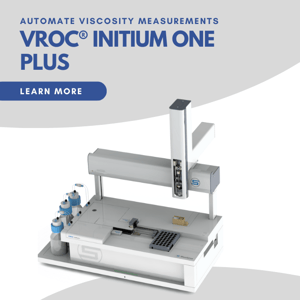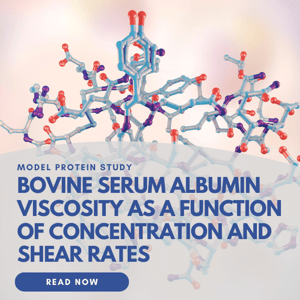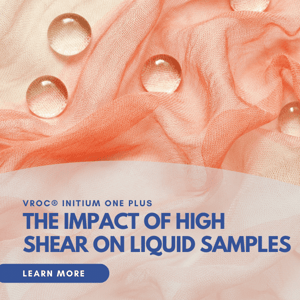
Viscosity of Fetal Bovine Serum and Media Formulations
Application Note Download
We recently published two application notes regarding the importance of viscosity when it comes to working with cell cultures and cell culture media:
Understanding the viscosity of your cell culture media can ultimately determine whether your cell culture will grow and thrive. In addition, being able to characterize the differences between formulations can also help expand into high quality new products.
In this application note, we dive into a deeper look where we take the viscosity data of fetal bovine serum (FBS) and also of cell culture medias supplemented with FBS. Using our automated solution, VROC initium, we were able to gather data where filtering FBS would not change its viscosity and FBS supplementation does change the viscosity of cell and tissue culture media formulations. Being able to characterize formulation to formulation differences as well as batch to batch differences can enhance product development when creating new formulations. This can help benefit cell culture and organ on chip platform powered products.
Key Words:
- Cell and tissue culture media
- Viscosity of fetal bovine serum
- Viscosity in product development
- Viscosity in process development
- Viscosity modifiers
- Viscosity of filtration
- Viscosity in formulation development
- Automated viscosity measurements
.jpeg?width=300&name=Woman%20scientist%2c%20documents%20and%20hands%20writing%20_575258496-min(1).jpeg)


.png?width=200&height=58&name=RheoSense%20Logo%20(REGISTERED).png)



